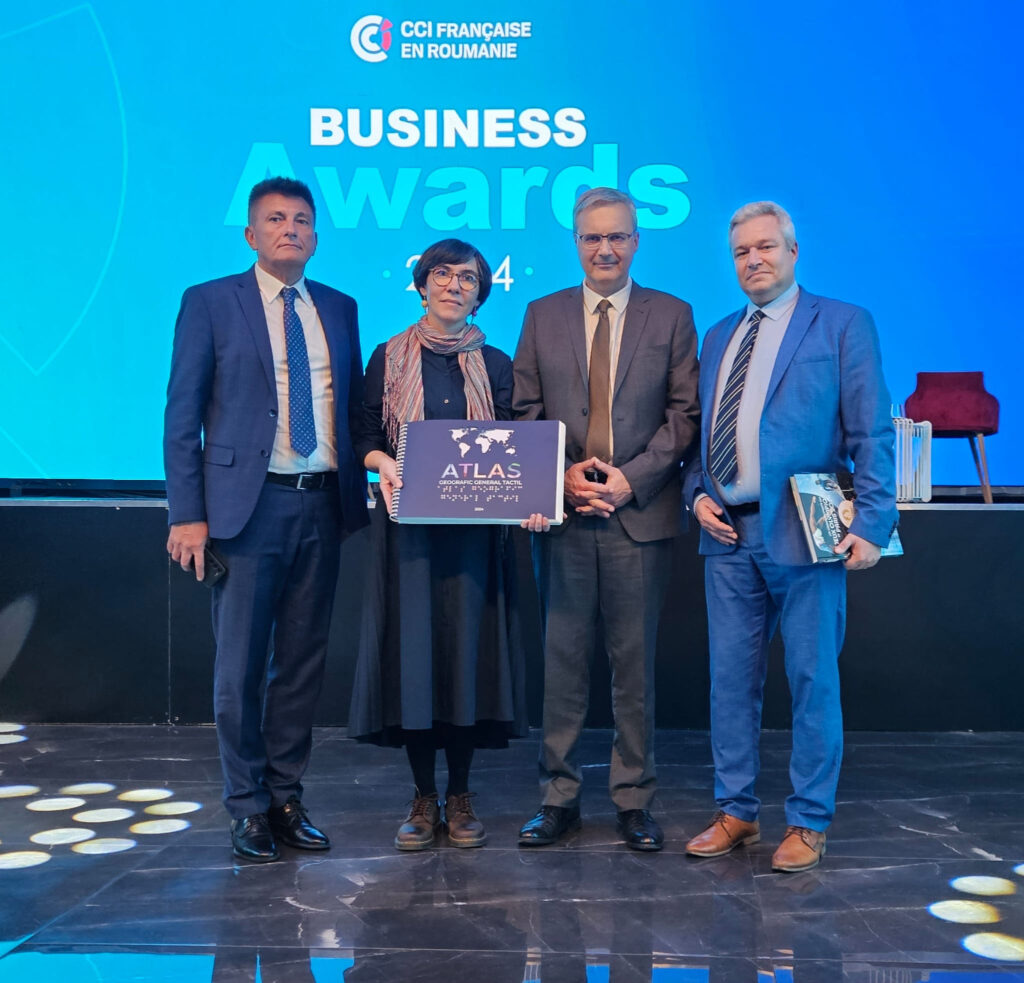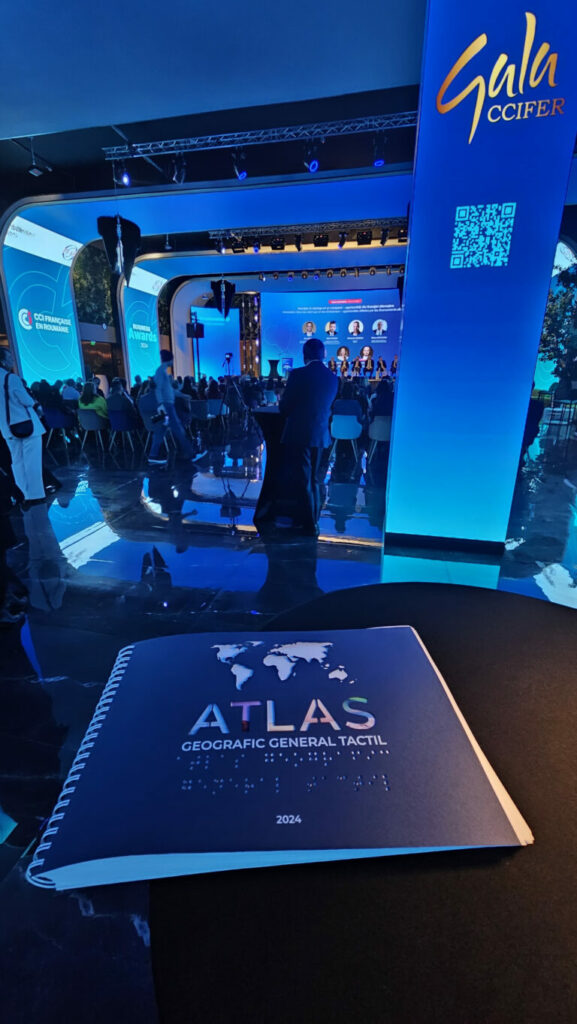
For several years, the CCIFER Business Awards has been a competition celebrating excellence and innovation, highlighting the expertise and achievements of companies and organizations within the Franco-Romanian business community, and rewarding inspiring successes. The 2024 edition brought together 67 projects, from which the jury selected a shortlist of nominees and, during the Gala held on November 26 in Bucharest, the five winners were announced.
The West University of Timișoara was represented in the competition by the General Tactile Geographic Atlas project, coordinated by Dr. Alina Satmari, which was named one of the five winning projects. On behalf of UVT, the award was received by Dorin Miron, President of the Francophone Business Club of Timișoara, and Conf. univ. dr. Mădălin Bunoiu, Vice-Rector of UVT.
Carefully designed and creatively crafted by an interdisciplinary team, this tactile atlas aims to provide visually impaired individuals access to complex geographical knowledge through a combination of tactile technology, Braille text, and audio explanations. It is not merely an educational resource but a tool that offers users autonomy and the ability to explore, learn, and develop cognitive skills independently and inclusively.
The initial sketches of the tactile maps were created by Dr. Alina Satmari and Fabian Leiba, also drawing on models inspired by Monica and George Tudor. The data used is up-to-date, adheres to fundamental cartographic rules as well as tactile economy principles, and is designed to provide a clear and intuitive understanding of global and local geographical phenomena and processes. All maps were subsequently digitally processed by Ioana Satmari and Eric Szilveszter, students specializing in Digital Media at UVT. The final layout of the maps was created by Fabian Leiba, a student at KEA – School of Design and Technology in Copenhagen.
Each map includes introductory explanations that guide tactile reading and help users decipher the graphic content. These accessibility materials were created by Naidin Balint, Cristian Maistor, and Tara Tripa, students specializing in Cartography. Additionally, a set of current and complementary scientific explanations ensures an independent and comprehensive understanding of the tactilely represented geographical issues. These were prepared by Dr. Ana Ianăș, a geographer with over 20 years of experience teaching geography in both pre-university and university education.
The audio explanatory content of the atlas can be quickly accessed by scanning a QR code included on each map. This leads to the website www.tactilelibrary.net, developed by Iulian Rotaru, a student specializing in Computer Science.
The Braille formatting and typesetting were carried out by Constantin Cristache, a specialized accessibility educator who also provided the final proofreading of the texts. The voice for the audio material is that of Irina-Margareta Nistor, and the audio editing was done by Daniel Secărescu.
The creation of the Tactile Atlas addressed a real need and involved collaboration between academia (West University of Timișoara) and the private sector (Francophone Business Club of Timișoara and ATOS Romania).
The project coordinator, Dr. Alina Satmari, stated:
“This tactile atlas is an example of pedagogical innovation and accessibility. It not only addresses the need for educational inclusion but also opens new research perspectives in the field of tactile and multisensory education. The use of the atlas in schools will allow visually impaired students to explore geography and actively participate in classroom lessons, thus supporting efforts for educational inclusion. Furthermore, the material is easy to use by teachers and parents alike, creating a diverse and collaborative educational environment. The General Tactile Geographic Atlas is more than an educational resource; it is a symbol of equal access to knowledge and a model for a world where every person, regardless of abilities, has the chance to learn and grow. This atlas is proof that education should not be an experience limited by disabilities but an opportunity open to all. It can serve as a replicable model for other fields of knowledge, and its educational impact can generate a paradigm shift in how educational resources for individuals with special needs are designed, contributing to a more equitable and inclusive society.”
The final version of the General Tactile Geographic Atlas will be launched at the Gaudeamus Book Fair – Romexpo, Bucharest, on December 8, 2024, in the presence of the project team. All produced copies (over 200 volumes) will be donated to special schools in Romania, schools with visually impaired students, museums, libraries, and relevant faculties across the country.




